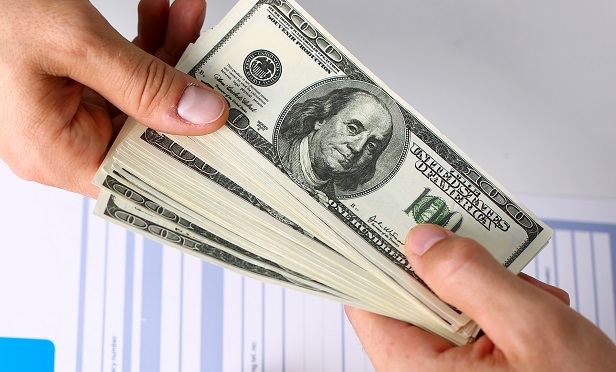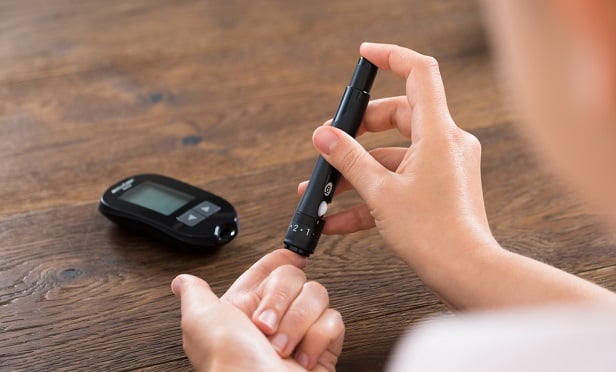 Thepractice of sending reimbursements is legal as long as thepatients are not enrolled in government-funded insurance such asMedicare and Medicaid. (Photo: Shutterstock)
Thepractice of sending reimbursements is legal as long as thepatients are not enrolled in government-funded insurance such asMedicare and Medicaid. (Photo: Shutterstock)
Kip Burgess was relieved last year when pharmaceutical giantAmgen overnighted him a $2,976 check to help pay for his go-toarthritis drug, Enbrel.
|The 36-year-old psychologist had run into an increasingly commonproblem: The copay coupon sent by Amgen couldn't cover thedrug's more than $4,000 monthly price.
|“Nothing in the world gives me more anxiety than just getting mymedication,” Burgess said. “There's nothing you can do butbeg.”
|Related: Copay accumulator programs: Are the risks worth thesavings?
|Panicked, Burgess had called Amgen and pleaded for help. Thedrugmaker sent him the check after he provided a credit cardstatement and an explanation of benefits to prove he bought itsdrug.
|It's one of the little-known secrets in health care: Whenfinancial incentives like copay coupons and debit cards won't work,pharmaceutical companies sometimes will write a check — what theycall direct reimbursement — to make sure a loyal patient will stayon a high-cost, brand-name drug.
|Drugmakers began using now-popular copay coupons and otherforms of assistance more than a decade ago to help patients payout-of-pocket costs for medicines, particularly high-cost specialtydrugs such as those that treat autoimmune disorders. The couponshave a dual purpose: They mask the true costs of a drug forpatients and give patients a financial incentive to stay on anexpensive drug until their insurance deductible is met.
|Ellen Albritton, a senior policy analyst with Families USA, saidthe multiple calls Burgess made to his insurer, pharmacy managerand the drugmaker to pay for his drug is “a lot to put on apatient.”
|“This highlights just how dysfunctional the system is, and itjust isn't working for patients,” Albritton said.
|“Nothing in the world gives me more anxiety than just getting mymedication,” says Kip Burgess, a psychologist who depends on Enbrelto treat his arthritis, a drug that costs more than $4,000 a month.“There's nothing you can do but beg.”
|The practice of sending checks is legal as long as the patientsare not enrolled in government-funded insurance such as Medicareand Medicaid, said William Schiffbauer, a Washington, D.C.-basedhealth insurance attorney.
|“You can accept cash from anybody as long as it's not agovernment program,” Schiffbauer said, noting there may be incometax obligations for the patient. The federal anti-kickback andStark laws were meant to prevent bribery of patients and doctorsand do not apply to private commercial insurance plans.
|AbbVie, which makes the blockbuster arthritis drug Humira, willsend a check if patients can prove their copay card doesn't workfor a variety of reasons, said Adelle Infante, director of externalcommunications for the company.
|Amgen, the maker of Burgess' arthritis medicine, provides up to$12,000 of copay assistance each year to commercially insuredEnbrel patients who need help meeting out-of-pocket expenses, oftenregardless of the patient's financial status. When the cards failto work, for whatever reason, Amgen can send directreimbursement.
|While Amgen's primary assistance is through copay cards, “insome instances, based on patient preference, Amgen will providedirect reimbursement” after a patient has already paid for themedicine, Amgen's Kristen Neese, director of corporate affairs,said in an emailed statement.
|Harry Totonis, chief executive of ConnectiveRx, a pharmaceuticalservices company, said sending checks to patients is “not acommonly used practice” and happens “a fraction of 1 percent” ofthe time. He declined to confirm the average value of the checks orname the drugmakers that issue checks via ConnectiveRx.
|“All of these programs try to help patients afford themedications,” said Totonis, whose company bought PSKW, which issuedthe check Burgess received from Amgen in 2017.
|Daniel Nam, executive director of federal programs for AHIP, theAmerica's Health Insurance Plans, said direct reimbursement usingchecks is just another way for manufacturers to make insurancecompanies pay for expensive drugs, which helps jack up monthlypremiums.
|This approach will “create a new black hole of patient-directedpayments and avoid any scrutiny,” he said.
|Insurers and lawmakers have begun to push back against thepopular copay programs, saying they raise the cost of medicationsin the long run. California passed a law last year limiting their use and federallitigators have increased scrutiny.
|Insurers and pharmacy benefit managers like CVS Caremark andExpressScripts have begun refusing to use copay cards as thedrugmakers intended.
|CVS Caremark introduced “copay accumulator” programs two yearsago. Patients can use a copay card or coupon to help cover the costof the drug, but the payment does not count toward their insuranceplan's deductible or out-of-pocket maximum. That often means thatwhen the assistance from the drugmaker — which is generally limitedto a fixed dollar amount — runs out, the patient is on the hook fora much larger share of the cost of the drug.
|“It is important to remember that while manufacturer-sponsoredprograms, such as copay cards, can help reduce out-of-pocket costsfor patients in the short-term, they can also lead to increasedhealth care costs in the system by encouraging the use of highercost, often branded drugs,” Christine Cramer, senior director ofCVS Health's corporate communications, emailed this month.
|A copay accumulator likely triggered Burgess' panicked call in2017. Amgen had issued Burgess a copay card preloaded with $12,000to help cover his out-of-pocket expenses. But his pharmacy begancharging the full monthly cost for Enbrel, not merely hisout-of-pocket share, against his copay card. And that big chargedidn't count against his annual deductible.
|So, after a couple of months, Burgess suddenly needed to paythousands of dollars to meet his deductible and get the medicationthat helped him get out of bed in the morning.
|But Amgen is reformulating the remedy Burgess sought, and he andother patients may be out of luck. As of 2018, Amgen said, it willsend checks only to financially needy patients whose insurers andpharmacy benefit managers use accumulator programs. The patientsmust show incomes at 500 percent or below the federal povertylevel, or $60,700 for an individual and $125,500 for a family offour. An Amgen email stated that only “an extremely small number ofpatients” have received money that way.
|Burgess doesn't qualify. He had to raid his savings this yearfor the money to cover his deductible.
|“It really feels like they are throwing me under the bus to getback at the insurance company,” Burgess said. “These two giantcorporations are fighting it out, and they don't really care aboutme in any shape or form.”
|Kaiser Health News isa nonprofit news service covering health issues. It is aneditorially independent program of the Kaiser Family Foundation,which is not affiliated with Kaiser Permanente.
|Read more:
Complete your profile to continue reading and get FREE access to BenefitsPRO, part of your ALM digital membership.
Your access to unlimited BenefitsPRO content isn’t changing.
Once you are an ALM digital member, you’ll receive:
- Critical BenefitsPRO information including cutting edge post-reform success strategies, access to educational webcasts and videos, resources from industry leaders, and informative Newsletters.
- Exclusive discounts on ALM, BenefitsPRO magazine and BenefitsPRO.com events
- Access to other award-winning ALM websites including ThinkAdvisor.com and Law.com
Already have an account? Sign In
© 2024 ALM Global, LLC, All Rights Reserved. Request academic re-use from www.copyright.com. All other uses, submit a request to [email protected]. For more information visit Asset & Logo Licensing.








